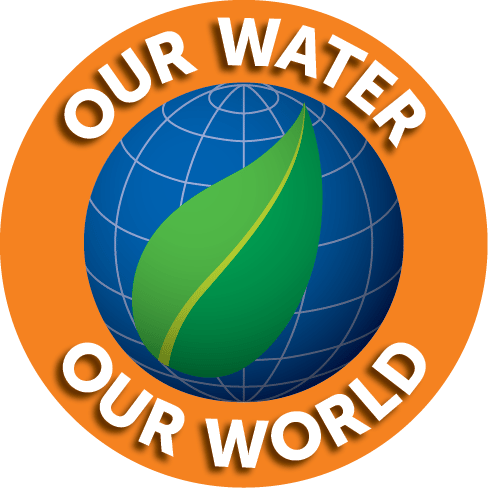- Reduce What You Buy
When you reduce what you buy, you reduce the pollution generated in the production and transportation of products. That may not seem substantial, but for every can of trash produced in the U.S., there are an average of 7 cans of trash produced to manufacture it. Ideas on how to reduce what you buy and use.  Reduce use of toxic pesticides and landscape chemicals.
Reduce use of toxic pesticides and landscape chemicals.
The Our Water Our World (OWOW) program has many tips for do-it-yourself Bay-friendly gardening. Remember, use pesticides and weed killers only when absolutely necessary and choose the least-toxic product available. Do not apply chemicals if rain is forecast or when you are watering as the run-off can contaminate creeks, the Bay and ocean. If you decide to hire a pest control operator, hire one that has been certified by EcoWise to provide Bay-friendly pest management.- Properly dispose of household hazardous waste.
Batteries, fluorescent bulbs, mercury-containing devices like thermostats and thermometers, unwanted pesticides and fertilizers, and automotive waste like used motor oil and antifreeze should be dropped off at your county facility. Find household hazardous waste facilities.  Don’t flush unwanted medication.
Don’t flush unwanted medication.
Some pharmaceutical chemicals persist through the wastewater treatment process and can end up in the Bay, where they may harm aquatic life. Click here for a list of collection sites.- Prevent fats, oil and grease from going down the drain.
We know saturated fats, like bacon grease can clog pipes, but so can vegetable oils. Keep your pipes clog-free by collecting fats, oil and grease in a sealed container and place in the trash. Bring large quantities (such as from a turkey fryer) to a collection site. Find collection sites.  Swap out mercury-containing devices for digital ones.
Swap out mercury-containing devices for digital ones.
Mercury spills from thermometers, thermostats, certain kinds of switches and blood pressure cuffs can pollute the Bay. Throwing them in the trash is no longer allowed either, because mercury from broken devices can vaporize into the air. Instead bring mercury devices to a collection site.- Buy rechargeable batteries.
Because batteries contain toxic and corrosive metals that can contaminate landfills, it is no longer legal to throw them in the garbage. Reduce the number of batteries you use by selecting rechargeable ones, which last 10 times longer than single-use batteries. Take all dead batteries (both regular and rechargeable) to your county household hazardous waste facility. Visit earth911.org for retailers that have collection programs in your area.  Don’t be a litter bug.Trash can harm local wildlife and aquatic animals. In some areas of the Pacific Ocean, plastic debris outweighs plankton 6 to 1! Dispose of trash properly and recycle plastic bags at major grocery stores.
Don’t be a litter bug.Trash can harm local wildlife and aquatic animals. In some areas of the Pacific Ocean, plastic debris outweighs plankton 6 to 1! Dispose of trash properly and recycle plastic bags at major grocery stores.- Wash your car at a commercial car wash.
Washing your car on your driveway or the street sends dirty water laden with soap, heavy metals, oil and grease into the gutter which eventually leads to local creeks and the Bay. Instead, go to a car wash, where the drains lead to the wastewater treatment plant. - Spread the word!
Help protect the Bay every day by following these tips yourself and letting your friends and neighbors know about www.BayWise.org.


 Swap out mercury-containing devices for digital ones.
Swap out mercury-containing devices for digital ones. Don’t be a litter bug.Trash can harm local wildlife and aquatic animals. In some areas of the Pacific Ocean, plastic debris outweighs plankton 6 to 1! Dispose of trash properly and recycle plastic bags at major grocery stores.
Don’t be a litter bug.Trash can harm local wildlife and aquatic animals. In some areas of the Pacific Ocean, plastic debris outweighs plankton 6 to 1! Dispose of trash properly and recycle plastic bags at major grocery stores.